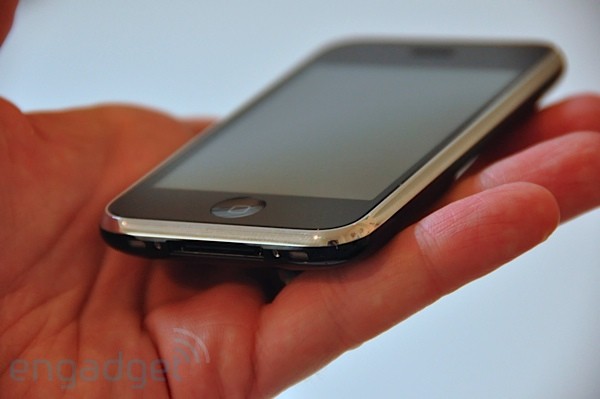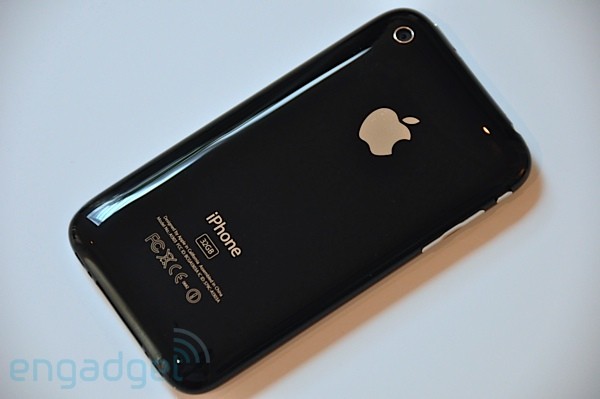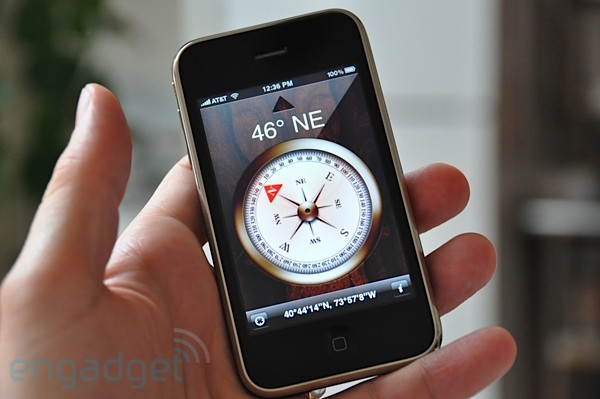If it ain't broke, don't fix it -- right? We know countless reviews of the iPhone 3G S may begin with that cliché, but there's little chance you'd find a better way to describe the strategy that Apple has just put into play with its latest smartphone. In many ways, the 3G S is a mirror image of the iPhone 3G; externally there's no difference. It's inside where all the changes have happened, with Apple issuing a beefed-up CPU, new internal compass, larger capacities for storage, and improved optics for its camera. More to the point, the release of the 3G S coincides with the launch of iPhone OS 3.0, a major jump from previous versions of the system software featuring highly sought after features like cut, copy, and paste, stereo Bluetooth, MMS, tethering, video recording, landscape keyboard options for more applications, and an iPhone version of Spotlight. At a glance, what Apple seems to be doing is less a reinvention of the wheel and more like retreading the wheel it's already got (and what a wheel, right?). So, do the iPhone 3G S and OS 3.0 tweak the details in just the right places, or has Apple gone and gotten lazy on us? Read on to find out.
Hardware
 As we said in the intro, there is nothing visually different about the iPhone 3G S versus the iPhone 3G, save for the lettering on the back, which is now mirrored like the Apple logo. While we had seen leaked images of a matte finish, bezel-free version of the device, when push came to shove, what we got was essentially a carbon copy of the iPhone 3G. In terms of the general elements of the phone -- the plastic casing, mute switch, home and power buttons, etc. -- there is no change at all. In fact, if you were to lay this phone and its predecessor next to one another face up, the new model would be indistinguishable. Of course, the 3G S is not just a clone of the previous device, and Apple has made most of its significant changes inside the phone.
As we said in the intro, there is nothing visually different about the iPhone 3G S versus the iPhone 3G, save for the lettering on the back, which is now mirrored like the Apple logo. While we had seen leaked images of a matte finish, bezel-free version of the device, when push came to shove, what we got was essentially a carbon copy of the iPhone 3G. In terms of the general elements of the phone -- the plastic casing, mute switch, home and power buttons, etc. -- there is no change at all. In fact, if you were to lay this phone and its predecessor next to one another face up, the new model would be indistinguishable. Of course, the 3G S is not just a clone of the previous device, and Apple has made most of its significant changes inside the phone.
Internals
 First off, the company has supercharged the CPU of the 3G S (remember, the S is for speed), jacking up the processor numbers from 412MHz to a rumored 600MHz. Additionally, the RAM is said to have doubled from 128MB to 256MB, the phone is offered with 16GB or 32GB of storage, and Apple has swapped out the previous graphics chip for a new version -- dubbed the PowerVR SGX -- which adds support for more robust visuals via OpenGL ES 2.0. All this should mean that end users will see a noticeable difference in app speeds and loading times (Apple claims an average of 2x faster loads, though since the company has been cagey about upgrade details, it's hard to know what the real differences are).
First off, the company has supercharged the CPU of the 3G S (remember, the S is for speed), jacking up the processor numbers from 412MHz to a rumored 600MHz. Additionally, the RAM is said to have doubled from 128MB to 256MB, the phone is offered with 16GB or 32GB of storage, and Apple has swapped out the previous graphics chip for a new version -- dubbed the PowerVR SGX -- which adds support for more robust visuals via OpenGL ES 2.0. All this should mean that end users will see a noticeable difference in app speeds and loading times (Apple claims an average of 2x faster loads, though since the company has been cagey about upgrade details, it's hard to know what the real differences are).
So, do the revamped insides equal an improved experience on the phone? Kinda.
For our oft-used phone actions -- flicking through homescreens, calling up search terms in Spotlight, scrolling through long lists -- we definitely felt like the 3G S was snappier than its predecessor. It wasn't like the doors were flying off, but there was a noticeable bump in speed, particularly when it came to initial data loads (how quickly you see content pop up within an application). When it came to opening apps which pull lots of that kind of content, like Contacts, Calendar, or Messaging, we saw an even more noticeable improvement. Comparing the 3G and 3G S side-by-side yielded small but absolutely palpable differences -- the 3G S does seem to eliminate quite a few of the hangs we find maddening as we go through our day. It's not the perfect salve, but it's a start.
We're excited by the cranked up CPU, but in our experience you'll see lowered load times (though obviously not as drastic) if you take a standard 3G and do a full restore, so there is the lingering question of whether or not the jacked-up feel of the 3G S will last, or will begin to bog down after months of use and heaps of data.
Hardware

Internals

So, do the revamped insides equal an improved experience on the phone? Kinda.
For our oft-used phone actions -- flicking through homescreens, calling up search terms in Spotlight, scrolling through long lists -- we definitely felt like the 3G S was snappier than its predecessor. It wasn't like the doors were flying off, but there was a noticeable bump in speed, particularly when it came to initial data loads (how quickly you see content pop up within an application). When it came to opening apps which pull lots of that kind of content, like Contacts, Calendar, or Messaging, we saw an even more noticeable improvement. Comparing the 3G and 3G S side-by-side yielded small but absolutely palpable differences -- the 3G S does seem to eliminate quite a few of the hangs we find maddening as we go through our day. It's not the perfect salve, but it's a start.
We're excited by the cranked up CPU, but in our experience you'll see lowered load times (though obviously not as drastic) if you take a standard 3G and do a full restore, so there is the lingering question of whether or not the jacked-up feel of the 3G S will last, or will begin to bog down after months of use and heaps of data.


No comments:
Post a Comment